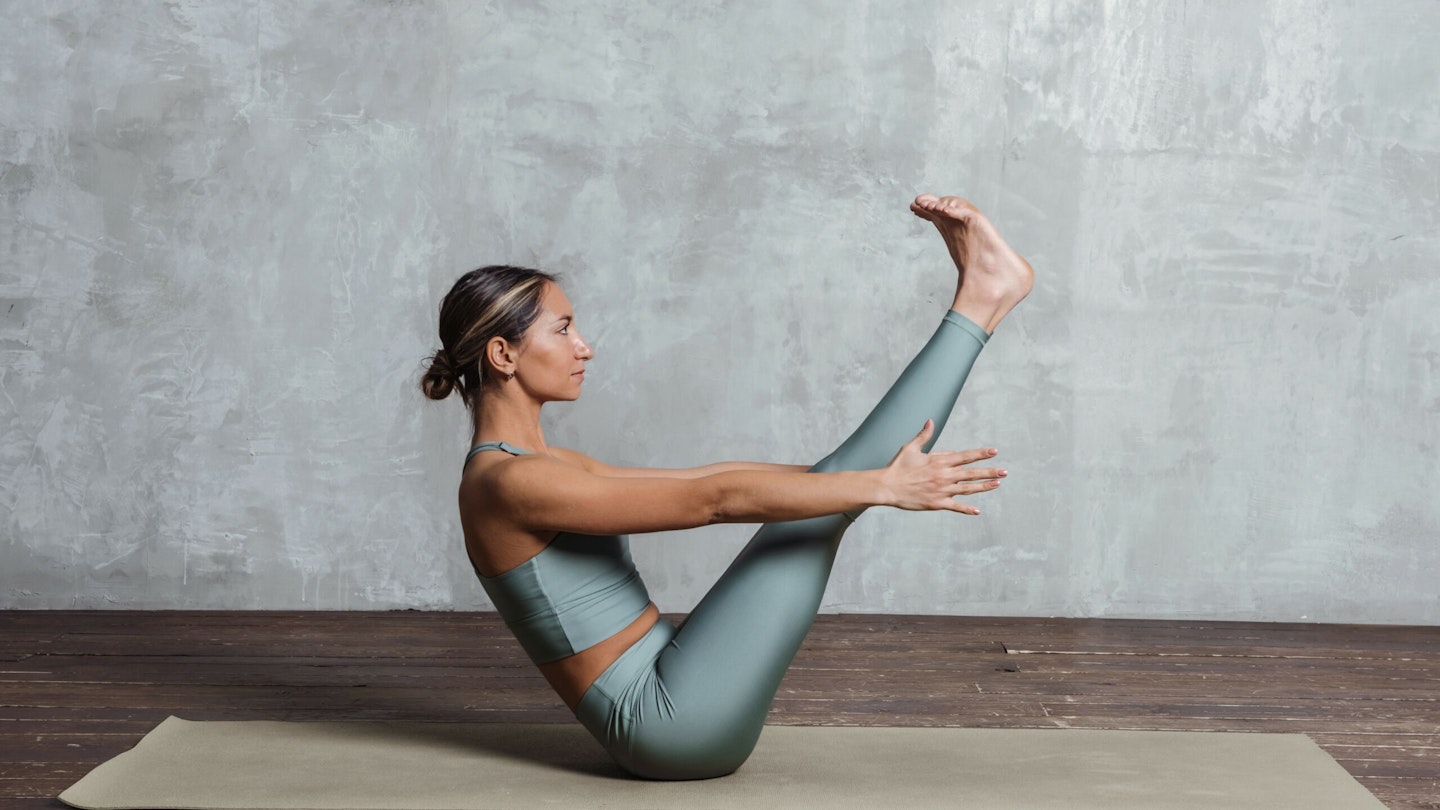Celebs including Rochelle Humes and Sam Faiers have been hitting their exercise mats to get in their regular pilates workout. Designed to strengthen and tone your body, focusing specifically on your core, it can improve your balance and posture, work on your flexibility and is great for your mental health too. Low impact with minimal equipment needed, it's suitable for all ages and is great for pre-and post-natal women){href='https://closeronline.co.uk/diet-body/health-fitness/top-6-pilates-moves-best-body-ever/ )' } – perfect for a home workout, whether you’re a beginner or if you’ve been practising pilates for a while.
What is Pilates?
Developed by German gymnast, Joseph Pilates in the 1920s, it was created as a way to strengthen the body after injury. After growing in popularity in the nineties, it's experiencing another boom with studios opening up all over the UK.
Jo-Leigh Morris, Pilates Coach for audio-led fitness app WithU says, “Everything comes from your core strength. We work a lot with the pelvis and the spine which is usually where a lot of injuries happen. For that to be stable you need the core to be strong. The results are great as its about lengthening and strengthening the muscles. It will also help you to improve your range and mobility and flexibility and I think that’s why a lot of the celebs are doing it as they get an amazing result.”
What are the benefits?
Suffering from back pain? Stressed out? The list of benefits Pilates offers your mind and body is endless:
Balance – focusing on your breathing and small movements will help connect your mind and body and promote better stability.
Flexibility – regular practise will allow you to maintain flexibility as you age and prevent injury.
Posture – training your body to maintain alignment will help you develop a strong posture and ease any back pain.
Digestion – incorporates poses which can help ease digestive issues and prevent bloating.
Reduce stress – the focus required allows you to completely switch off to concentrate on your breathing, which is great for your mental health.
Pilates and mental health
Many devotees of this type of exercise don’t just notice physical toning and strength, but mental health benefits too. Jo-Leigh explains, “Pilates is great for connecting your mind to your body. Often, we have so much going on in our lives so having that time on your mat to give your body a bit of calm is always needed. We encourage belly breathing – so not breathing into your chest with quite shallow breaths, but feeling that breath go all the way down your body to your stomach. It will really help you to calm your mind and settle your body. It will calm down your stress hormones and your sympathetic nervous system.”
What are the different types of pilates?
Mat Pilates uses body weight to create resistance. Some workouts incorporate sliders, which allow you to slide your feet across the floor whilst keeping the rest of your body still, a pilates ring, which is flexible and lightweight and can be used to create additional tension or a resistance band.
Reformer Pilates is carried out using a sprung carriage which you slide back and forth and allows you to work your muscles by steadying your body or using the springs as additional resistance.
Wall Pilates requires you to combine bodyweight moves with a wall to give you stability and allow you to access more challenging moves.
Stott Pilates is primarily focused on the spine and encourages a neutral alignment of the back as you carry out the exercises. It’s great for back pain and injury rehabilitation.
Fast becoming one of the most popular workouts, with easy access to classes or home workouts and great toning results, it’s no wonder this has become a go-to for celebrities.
